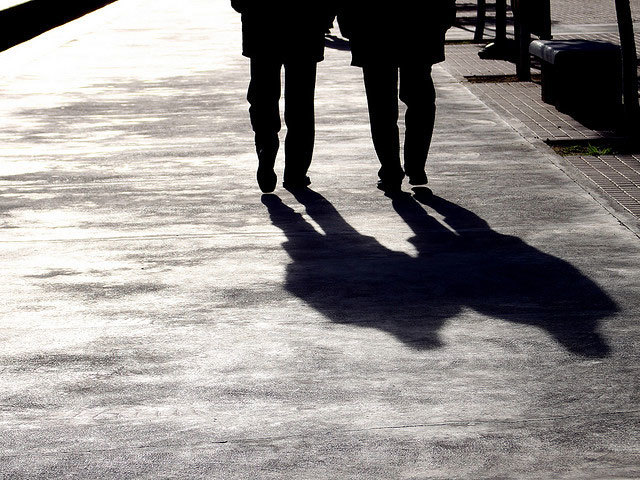
The bystander effect happens when a group of people don’t step forward or intervene when they should – seeing someone in distress in a public place for instance.
Experts believe that there are two factors at play – responsibility becomes shared and diluted, and because others are not stepping forward – the group ‘norm’ is to do nothing – and boy oh boy, how us humans love to conform to the social norm. There are some harrowing tales and interesting video clips readily available to illustrate this principle.
I was on a flight with my wife Lorraine. When the safety briefing came on we both sat and watched, but were distracted by a nearby passenger who was talking loudly on the phone. I hoped the stewardess would intervene, but she didn’t. I hoped that the people sitting next to him would intervene – but they didn’t. I could have intervened – but I didn’t.
I was embarrassed at my lack of courage in what could have been a simple and polite request to let others watch the briefing – I was ashamed at my failure. I rationalised with myself that it could have caused embarrassment for my wife and that had I been on my own I probably would have spoken up – but I was wrong.
Two days later, on another flight I sat to watch the safety briefing – and two rows back three passengers talked loudly throughout the whole briefing and distracted others from paying full attention. I didn’t say anything. They were far enough away that I would either have had to get out of my seat (the fasten seatbelt lights were on) or shout loudly from where I sat (either way creating a potentially embarrassing ‘scene’ and possibly generating ill-feeling for the rest of the journey) – so I chose to do nothing, focus on the briefing and put the whole episode behind me.
But it nagged at me. Why had I failed not once, but twice in just a few days! I have intervened many times over many years and not been put off by the fear of a hostile response or potential embarrassment. I have done this in the workplace and in public areas too.
Work sites within the oil & gas industry can be extremely dangerous and intervening on an unsafe act is actively encouraged.
By sharing this story with you I feel greater accountability for speaking up next time. Surely this scenario will repeat itself and I’m committed to getting personally involved.
Have you ever been disappointed by your own decisions or actions around safety interventions?
When you have intervened, what gave you the courage to do it and what was the outcome?
A flawed CEO,
Bob
Originally from Jedburgh in the Scottish Borders, Bob now lives in Aberdeen and is married with three children. He’s worked in the oil and gas industry for 26 years, having graduated with a Master of Engineering degree from Heriot-Watt University and is a chartered engineer. He’s worked offshore, in maintenance as well as operations and asset management, spending many years working for oil & gas operators. In November 2012, he became CEO of Wood Group. His vision is to build on the company’s success, combining our collective strengths to become a world-class company built on the solid foundation of seven Core Values. His company’s core values are more than just words. They are real and memorable; Bob and his team use them as a key decision-making tool and they are communicated and reinforced regularly.
In addition to his engineering background, Bob has also been involved in a number of cross-industry organisations and projects. He served as chairman of the Offshore Contracting Association (OCA) and the cross-industry trade body Oil and Gas UK. He sat on ‘Pilot’ – the industry-government steering group, was a member of the UK cross-industry Step Change in Safety Leadership Team and led the UK Helicopter Task Group formed in 2009 to accelerate safety improvements in air safety.
For more content from Bob click here
Recommended for you
